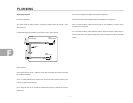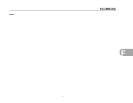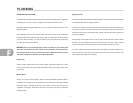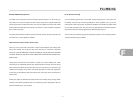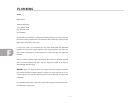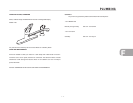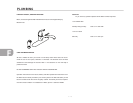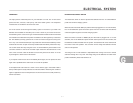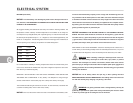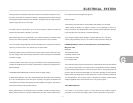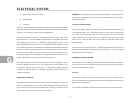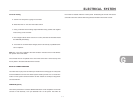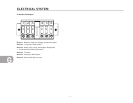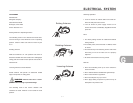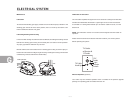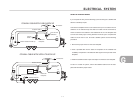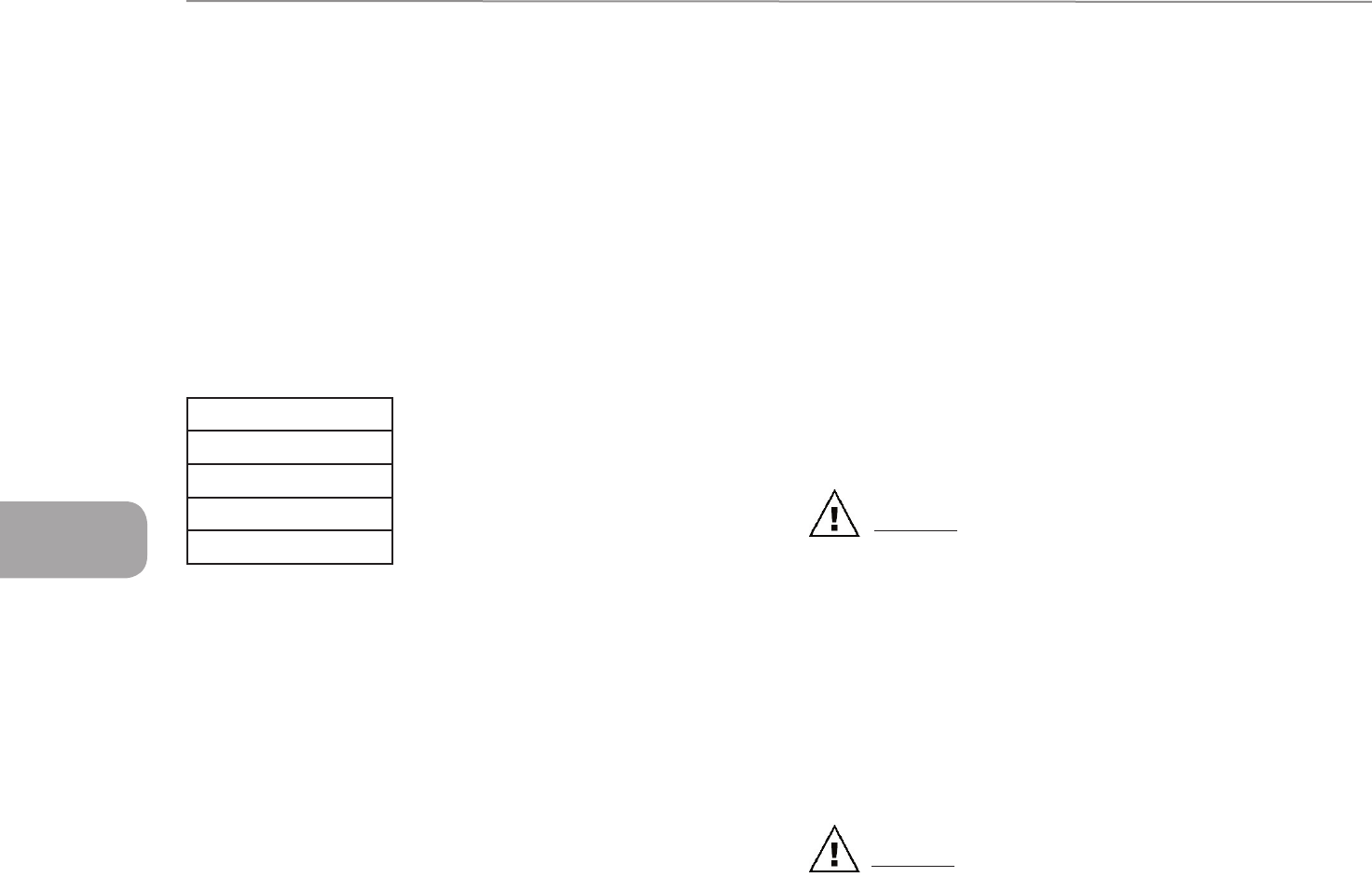
G
ELECTRICAL SYSTEM
G - 2
BATTERY (Lead Acid)
NOTICE: A normal battery can discharge by itself in 30 to 40 days when not in
use, therefore, IT IS NECESSARY TO PERIODICALLY CHECK THE BATTERY AND
CHARGE IT AS IS NECESSARY.
We suggest checking the batteries at least every two weeks in freezing weather. The
temperature at which a battery will freeze depends on the condition of its charge. As
an example: a fully charged battery with a specific gravity of 1.265 will not freeze until
the electrolyte temperature drops to - 71.3 degrees F, while a discharged battery will
freeze at +19 degrees F. The following table shows the freezing points of batteries at
various specific gravity readings, temperature corrected 80 degrees F.
1.265 -71.3 F
1.250 -62 F
1.200 -16 F
1.100 +5 F
1.150 +19 F
Do not add water to a battery in freezing temperatures unless the vehicle will be put to
use at once, otherwise the added water may freeze. Neglect is expensive. Care costs
little. Check your batteries regularly.
MAINTAIN A CLEAN BATTERY TOP AND CHECK TERMINALS AND CABLES FOR
TIGHTNESS AND CLEANLINESS. A dirty battery will dissipate its charge through
surface contamination. Clean battery top with a damp cloth and dry thoroughly.
The terminals should be tight and free of corrosion. To clean terminals, neutralize with
a solution of baking soda, rinse in clear water, and dry.
NOTICE: Care must be used to make sure soda is not allowed to enter battery cells.
To insure maximum battery capacity on the charge and the discharge, the bat-
tery terminals and the inside portion of the cable connector should be scraped
or brushed until both of these surfaces are shiny bright. The cable connectors
should then be reconnected to the battery and tightened. The complete assem-
bly, battery post and cable connector should be coated with heavy body mineral
grease, petroleum grease or petroleum jell.
NOTICE: RECONNECT THE BATTERY CABLES TO THE CORRECT BATTERY
POSTS. The black cable should be connected to the negative (-) post and the
red cable to the (+) post. The polarity of your tow vehicle must also be negative
(-) ground since it must always match the trailer. Most tow vehicles are negative
grounded, but always check your vehicle owner’s manual to be sure.
ADD WATER TO CELLS AS NECESSARY. Check the electrolyte level at least once a
month. When you are traveling steadily and for an extended period of time, or if you are
in climates above 90 degrees F, check the electrolyte level about every two weeks.
WARNING: When checking or filling the electrolyte level in the bat-
teries, do not allow battery electrolyte to contact skin, eyes, fabric, or painted
surfaces. The electrolyte is a sulfuric acid solution, which could cause serious
personal injury or damage to the trailer. Wear complete splash proof goggles and
clothing protection when working with batteries. Avoid touching your eyes while
working near batteries.
NOTICE: Do not fill battery above the split ring in filler opening. DO NOT
MEASURE SPECIFIC GRAVITY IMMEDIATELY after adding water. The water must
mix with the electrolyte by charging or by driving a few miles.
WARNING: The gases generated within a storage battery cell may be
ignited by an open flame or spark in the vicinity of the battery. Do not use a match
or flame to provide light for checking the level of the water.



